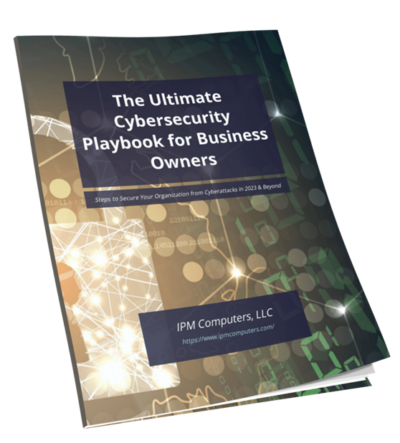In today’s digital age, where almost everything is online, securing your computer system and protecting it from viruses has become more critical than ever. A simple mistake in browsing the internet or downloading an unknown attachment can open up a Pandora’s box of malicious attacks causing substantial financial losses or theft of confidential data.
Therefore, having adequate knowledge about different types of computer viruses and the measures to protect your system is more imperative than ever. This guide aims to provide you with the information you need to help you secure your digital life by understanding computer viruses and implementing effective protective measures.
Understanding Computer Viruses: Types and Characteristics
Computer viruses are malicious software programs created to harm your computer system, steal sensitive information, or disrupt normal functioning of your digital devices. There are various types of computer viruses that can cause different levels of destruction. For instance, spyware may collect personal data such as keystrokes and passwords while ransomware can lock you out of your files until you pay a certain amount to the attacker.
Understanding the characteristics and symptoms of each virus type is crucial for identifying possible attacks early enough before irreparable damage is done. Once infected with any malware program, some common signs include slow performance, pop-ups on websites or unfamiliar error messages prompting for updates or unsolicited requests for administrator permission. The extended periods taken in loading pages could also be an indication that there is something amiss with the system.
Common Ways Viruses Enter Your System: How to Avoid Them
Viruses can sneak into your computer system in many ways, and understanding these common entry points is the first step to protecting yourself. One of the most prevalent methods of virus infiltration is through email attachments or links within emails that might look legitimate but actually contain malware. Clicking on a malicious link or downloading an infected attachment can provide malicious individuals access to your entire system.
Another method hackers can gain access to your system is by clicking on pop-ups or downloads from unsecured websites. These websites often offer free software downloads, but once downloaded, they can have viruses hidden inside them that infect your computer. The best way to avoid these types of attacks is by avoiding unsecured sites altogether and always checking if download sources are trustworthy before installing anything on your computer.
Best Practices for Safe Browsing and Downloading
When it comes to safe browsing and downloading practices, the first step is to ensure that your computer system has up-to-date antivirus software installed. This software should be set to update regularly so that it can detect any new threats and protect your system accordingly. In addition, you must exercise caution while visiting unfamiliar websites or downloading unknown attachments from emails or messages.
Another best practice for safe browsing involves being mindful of the websites you visit and paying attention to their security measures. For example, make sure the website’s URL starts with “https” instead of “http”, which indicates a more secure connection between your device and the website server. It’s also crucial to avoid clicking on suspicious pop-ups or unexpected downloads in order to prevent malware infection.
Essential Security Measures: Antivirus, Firewalls, and Updates
To protect your digital life from threats such as malware and viruses, it’s important to have essential security measures in place. Antivirus software is one of the most critical tools you can use to safeguard your computer system against potentially harmful attacks. This software can detect and remove malicious programs, preventing them from causing damage or stealing information that could compromise your privacy.
Another critical tool for securing your digital life is a firewall. A firewall acts as a barrier between your computer network and the internet itself; it monitors incoming and outgoing traffic to identify potential risks, blocking unauthorized access while allowing legitimate traffic through. By using both antivirus software and firewall technology together, you can create an effective defensive shield against cyber-attacks.
Regularly updating your operating system (OS) and other applications on your computer is also important since updates often include critical fixes for known vulnerabilities. These vulnerabilities are points of entry for hackers who may exploit them to gain improper access into systems; keeping current with vital security patches ensures that these holes are not left open long enough for attackers take advantage of them.
Signs of a Virus Attack: How to Detect and Respond
One of the most important steps to protect your computer system from viruses is being able to recognize the signs of a virus attack. Some common symptoms include sudden slow performance, frequent crashes or freezes, unusual error messages, and unexpected pop-up ads. These may indicate that your computer has been infected with malware or other harmful software. Sometimes, there may be no apparent symptoms at all which makes it more difficult to detect.
To detect a potential virus attack in your system, you can use antivirus software that periodically scans for threats and alerts you if any are detected. It is also important to keep your operating system and applications up-to-date with the latest security patches as these help close any vulnerabilities that hackers could exploit. In case of an actual virus attack, time is of utmost importance as every minute counts when it comes to minimizing damage caused by the malicious software.
In terms of responding to a virus attack, turning off the internet connection and shutting down the system immediately can prevent further spread of infection. Contacting IT support or seeking professional help from reputable sources, such as the Wilmington IT helpdesk, might also be necessary depending on the severity of an attack on the system’s data and programs. Ultimately prevention remains key; keeping backups regularly will ensure essential files remain intact after an incident- investing in updates & protection ultimately saves not only money but hassle as well.
Protect Your Digital Life Today
It is essential to understand the threat of computer viruses and how to protect your digital life. At IPM Computers LLC in Wilmington IT Services, we believe that prevention is better than cure. With our network security services in Wrightsville Beach, you can rest assured that your data and system are safe from potential threats. Our team of experts is always ready to help you with any concerns you may have regarding your digital security.
Don’t wait until you become a victim of cybercrime; take action today and secure your digital life. Contact IPM Computers and schedule a consultation to learn more about our network security services and Managed IT Services in Wrightsville Beach, NC. Let us help you protect what matters most.





